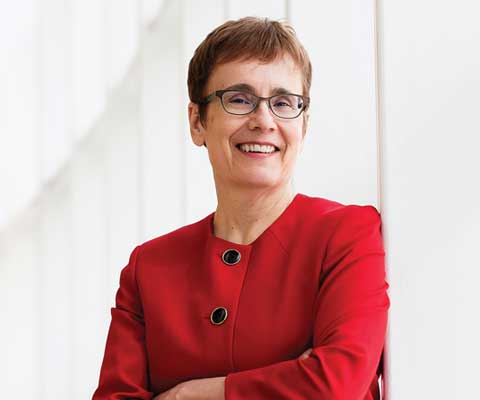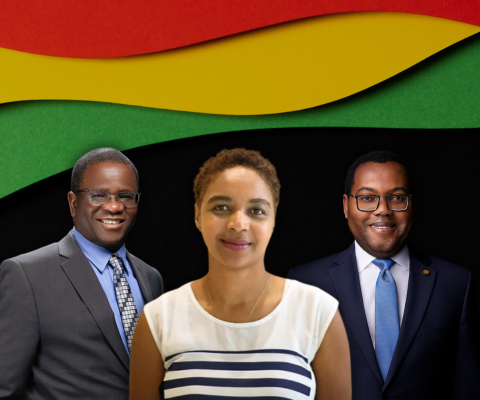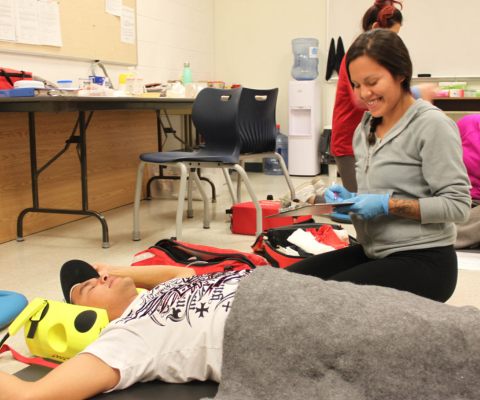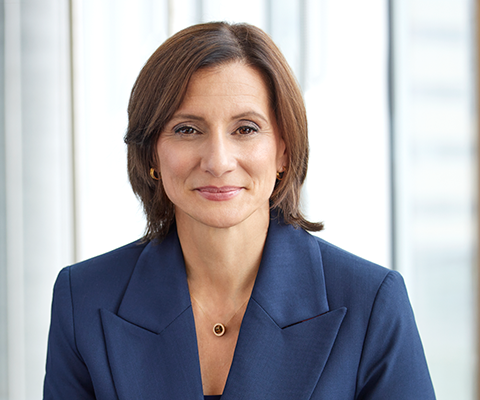University presidents on International Women’s Day: Annette Trimbee

Annette Trimbee, president and vice-chancellor of MacEwan University, reflects on her experiences as a female leader and gives advice for future generations of women.
What do you think is the most significant barrier to female leadership?
I read recently that 1 in 4 think it is more likely that humans will colonize Mars than that half of Fortune 500 CEOs will be women.
That is pretty telling.
The biggest barrier to female leadership is that many are still holding on to the traditions of, and expectations for, traditional male leadership- decisive, authoritative, driven, and results focused. It is a classic “chicken and egg, what comes first?” twirl that will only change when more women assume leadership roles and more of us open up to valuing leaders that excel at people skills, are inclusive, bring their whole selves to work and care as much about the why and how things get done, as what gets done.
How important is it to have a mentor to grow as a leader?
We all need mentors, and more importantly sponsors throughout our development as leaders. Mentors serve as sounding boards or confidantes. Sponsors go further and take a formal and actionable interest in a candidate’s career growth and progression. Women are often afraid to seek mentors or sponsors, either because of a lack of confidence or a fear that asking for help will be misperceived as an attempt to secure favoritism or reverse discrimination. What we may miss is that male colleagues are already getting these supports. These supports lift and create a pull. Career progression should not be glamorized as a solo climb. It rarely, if ever, is.
How do you balance career, personal life and interests? Is balance possible?
I abandoned the phrase work-life balance a long time ago and instead focus on work-life harmony. It started when my children were young. I did not compartmentalize roles and brought my whole self to work. I learned as much from being a parent about listening and conflict resolution as I did as a formal leader at work. I was present and in the moment at home. Harmony for me meant that my work needed to have positive impacts, impacts that were explainable to a child and that my life and career goals needed to be compatible. It also meant that I needed to be very aware of and manage my energy. I learned early to surround myself with talented people. I was all in at work and all in with my children and for decades to achieve harmony this meant very little time for personal interests or community work that did not tie to my work or family role. Harmony today for me looks different. I continue to look for joy and am easily energized by spending time outdoors, listening to live music (it doesn’t even need to be good), learning about pretty much anything and collaborating with interesting people. Work-life harmony is possible. It requires reflection and choices.
What advice would you give this next generation of leaders?
You are and will be many things. You will have many careers and your career is just one part of who you are. First, be a good human. Be authentic. Take risks. Find your thread, your purpose, your why. Own your energy. Take your place at the table. Ask for and accept help.
Approach your life and career with intent. I used to say that I did not have a plan, just did my best and was lucky. It is just in the last decade that I admit to making deliberate choices, taking risks, playing the long game and pursuing the roles that I wanted based on my interests and purpose, my own thread.
“There’s a thread you follow. It goes among things that change. But it doesn’t change. People wonder about what you are pursuing. You have to explain about the thread. But it is hard for others to see. While you hold it you can’t get lost…” – William Stafford, The Way It Is
About Universities Canada
Universities Canada is the voice of Canada’s universities at home and abroad, advancing higher education, research and innovation for the benefit of all Canadians.
Media contact:
Lisa Wallace
Assistant Director, Communications
Universities Canada
[email protected]
Tagged: Equity, diversity and inclusion




